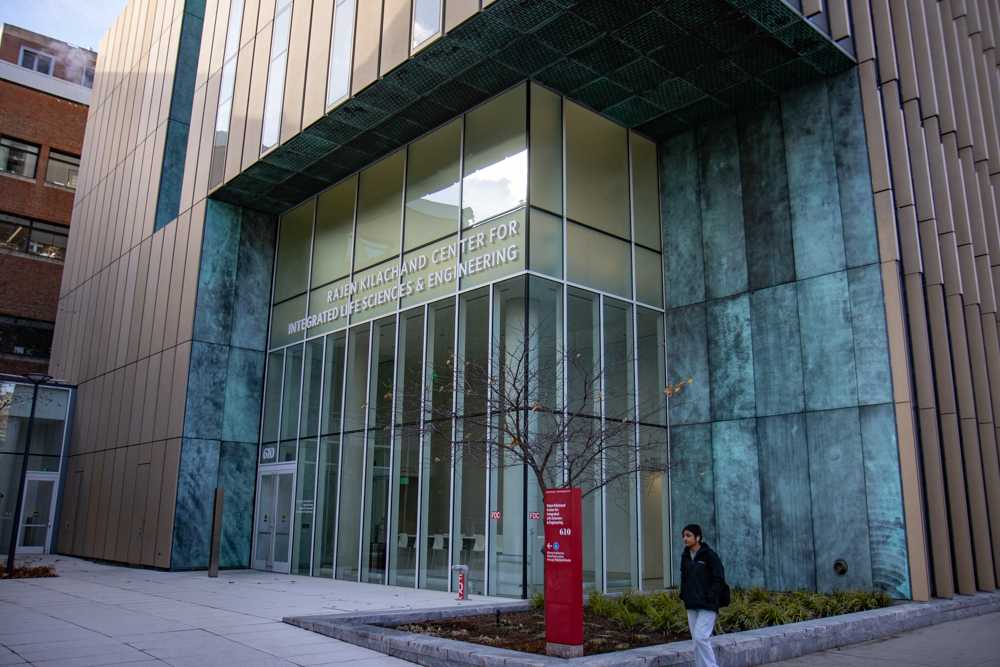Enrollment for Boston University science-based programs has shown moderate growth, despite a recent trend of decreasing interest among American youth.
A recent survey of young Americans conducted by the Lemelson-MIT Invention Index found 60 percent do not intend to pursue careers in science, technology, engineering or math.
BU officials said, however, BU’s programs have been relatively unaffected.
Numbers provided by BU spokesman Colin Riley show an increase in enrollment in the computer science program, though it fluctuated throughout the last decade. Enrollment steadily declined from 379 students in 2002 to 178 students in 2006.
However, student interest appeared to increase in the following years. In fall 2011, the computer program comprised of 254 students.
Riley said in a phone interview College of Engineering’s numbers have fluctuated throughout the past decade, but could not comment on the direction of the trend.
ENG enrolled about 1,300 undergraduate students for the 2010-11 school year.
“There’s nothing that says it’s an exact trend here, because you’re dealing with individuals’ decisions,” Riley said. “But on this campus our engineering numbers are strong.”
The survey suggested students encounter obstacles in the sciences, including insufficient training in high school and lack of knowledge about these fields.
Glenn Hall, director of Undergraduate Mathematical Instruction, said BU’s math department is not seeing a decline in interest, despite what the study reported.
Hall could not provide exact numbers, but said more students have signed up for math and statistics courses over the last three or four years.
“Some students have been ‘turned off’ to math at an early age and it is hard to win them back,” Hall said. “There is a great deal of pressure not to take too many chances where grades are concerned.”
Though the numbers might not show it, a variety of BU students’ feelings could help explain the trend Lemelson-MIT Invention Index found. Some said they stray away from “difficult” science courses as much as possible.
College of Communication sophomore Jana Levin said she would consider studying chemistry if the courses were not too challenging.
“I feel like it’s too hard, and most people I’ve talked to who were in chemistry 101 said it’s the hardest class ever or dropped [the course],” Levin, who is studying public relations, said. “It scared me from pursuing it even though I would be happier doing it.”
Binland Lee, a College of Arts and Sciences junior, said she considered studying biology but instead pursued a degree in marine biology at BU.
“I wanted to learn as much as possible to fulfill these different interests of mine,” she said. “It’s a very personal interest in that it’s all about the ocean. Everyone in my major is in marine science because they love the ocean.”
While students may consider marine biology to be a less difficult science, Lee said marine biology students take several graduate courses as part of their major requirements.
“By the middle of our junior year, most of us would have taken graduate courses because we do our marine semester,” she said.
College of Arts and Sciences senior Peter Wilson, who studies cultural anthropology, said he enjoys not having to take several math classes to fulfill his requirements.
“I’ve had one math class, and that was plenty,” Peter said.
While Wilson noted the importance of learning science and mathematics to improve U.S. education standards, he said those subjects do not come naturally to him.
Emily Holden, a senior in Sargent College of Health and Rehabilitation Sciences studying occupational therapy said she understands why students are scared away from hard science classes.
“Those classes are usually stereotyped as more difficult, and I think that’s probably why some people are steered away from them,” Holden said.
However, Holden said she didn’t let hard classes scare her away from her passion for science.
“I’ve always been interested in science, more so biology than anything else,” Holden said. “If I have to take classes like that to get to where I want to be, I’m willing to do that no matter how difficult they are because I know they’ll help me in the long run.”
Steph Solis and Emily Overholt contributed to the reporting of this article.



























































































































